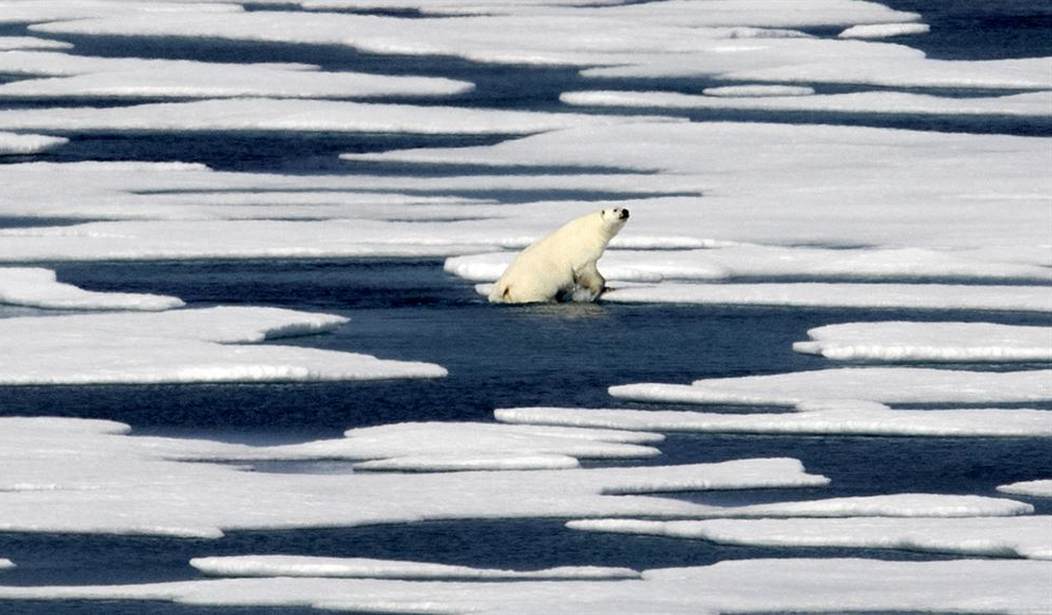I always thought that drinking too much was bad for your liver.
It is, of course. But the real reason you should quit drinking cocktails is that you are murdering Mother Earth.
At least that seems to be the advice that the ever-scientific Scientific American is dishing out.
If you thought "The Case Against Air Conditioning" was bananas, get a hold of this. https://t.co/yPVJhkFlOl
— Alex Trembath (@atrembath) June 26, 2023
It takes a person with ice water in their veins to suggest to Americans that they drop their favorite cocktails, but the cold-hearted folks at SciAm want you to go cold turkey in order to save the planet.
Ice, unsurprisingly, uses a lot of water to make. And worse, it is energy-intensive, especially if you imbibe your cocktails at a bar or restaurant with an icemaker that runs constantly to keep churning out refreshing ice.
Worst of all, at the end of the night’s entertainment that ice is usually allowed to melt and go down the drain, meaning all that energy and water went completely to waste.
Horrors!
As SciAm rightly points out, ice wasn’t even available to people in most places most of the time until an enterprising New Englander invented the industry in the early 19th century, cutting ice out of a lake in the winter and storing it for distribution throughout the year. He even created a worldwide industry well before artificial refrigeration was invented.
This is, I suppose, proof that human life and ice need not coexist, but that says little about whether a world with ready access to ice is preferable to one without.
It is, in fact, preferable to have ice available.
Even Scientific American admits that cocktails actually require ice to achieve their signature flavors. There is science backing them up on this.
Ice not only cools cocktails; it changes their flavor, texture and balance. Shaking liquids with one-inch cubes, for example, aerates the alcohol and emphasizes subtle flavors, and it can also produce thick foams necessary for drinks such as the whisky sour. Crushed ice, meanwhile, dilutes cocktails quickly because of its high surface area, creating the refreshing, slushy consistency found in juleps that would taste too cloying otherwise. Bartenders in New Orleans went from serving simple, lukewarm drinks to inventing some of the country’s most famous cocktails. There was the Sazerac, of course, in which the ingredients are stirred with ice to temper the burn of the high-proof rye and absinthe while melding the flavors. Henry Charles Ramos created his eponymous gin fizz in 1888 by shaking the liquids (including egg white and citrus) with crushed ice for a full 12 minutes, “until there is not a bubble left but the drink is smooth and snowy white and the consistency of a good rich milk.” In essence, ice transformed bartending from a mere job to a craft that involved creativity, chemistry and flourish.
But, as you know, environmentalism is about ensuring that we cannot have nice things. All religions require ritual sacrifices of some kind or another. In ancient times that meant literal sacrifices of living beings; later that meant ritual donations of food or other material goods to the gods; now, usually, it means symbolic sacrifices such as giving things up for Lent or Passover.
Environmentalism means giving up things like cars, air conditioners, or ice for the good of Mother Earth.
Of course, most religions have feast days as well, and I suppose Pride month might qualify for the modern religion. I should find a sociologist or religion studies scholar who is not insane to discuss this, but where would I begin? Insanity seems a prerequisite for the position of scholar these days.
As with most religions, only the most devout actually follow through on performing the ritual sacrifices, and my guess is that the sheer irrationality of most environmentalism won’t be its downfall, but the fact that environmentalists are above all else killjoys. The alphabet people at least offer absolution for indulging in your darkest desires, sanctifying even sadism as a virtue.
Environmentalists, though, want you to sweat and freeze in the dark, stuck at home without a car.
This, more than anything else, is its Achilles’ heel. Thank God.
Time for a Gin and Tonic.








Join the conversation as a VIP Member